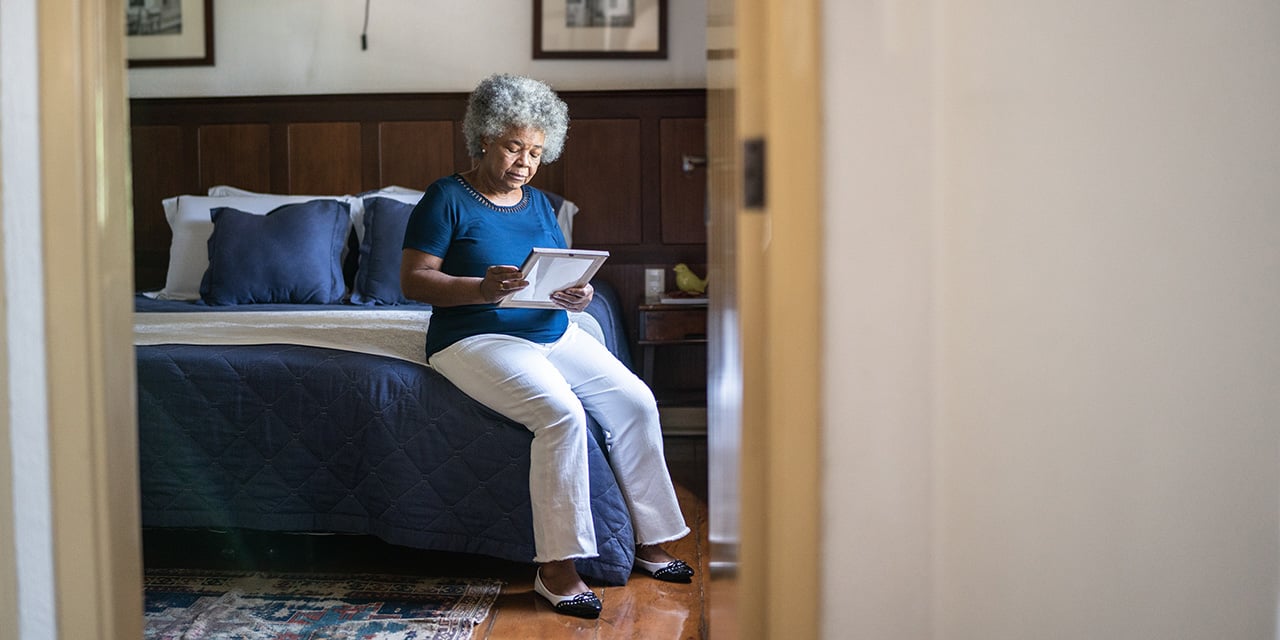
What to Do After Losing a Loved One
The death of a loved one isn’t always easy to overcome, and losing someone whose estate you are responsible for can leave you tasked with executing their wishes while grieving. Closing out someone’s personal, financial and legal affairs can be stressful, so consider using this guide to help you stay on track.
The First Important Tasks
While financial affairs are vital to take care of, your first priority is notifying the close family and friends of the deceased. Not only is it necessary for them to receive the news, but also for you to have support to lean on during an extremely difficult time.
Make Final Arrangements
Of course, one of the most significant tasks to complete after a loved one’s passing is making their funeral arrangements and preparing their obituary. When doing so, remember to review life insurance policies and any pre-arranged details that may have been made for funding.
Become the Designated Personal Representative
Prior to beginning the process of settling the estate, you will need to get officially appointed as the executor. To do this, you should obtain and fill out a copy of a form requesting to be the executor, which can be done through the clerk of the probate court or your state’s probate court website. After getting the form notarized, be sure to file the form with the Clerk of the Court and pay the filing fee. Afterwards, send the Notice of Application to any individuals interested in the estate, like heirs or beneficiaries.
Contact the Necessary People and Organizations
After you’ve been named as the executor, and the proper relatives and friends have been notified, those who need to know of your loved one’s passing from a financial and logistics perspective should come into the picture. As necessary, be sure to let the deceased’s place of work know of his or her passing, along with any volunteer organizations they were regularly involved with. Another important call is the deceased’s attorney, as they may have important documents related to the estate. After that, insurance agencies, credit reporting agencies and government agencies (Medicare, Veterans Affairs, the DMV and post office) should also be contacted.
You may also want to contact your own financial advisor, attorney or accountant, as these professionals can help you understand how the death of a loved one may affect your personal finances, like covering any funeral expenses or paying off the deceased’s mortgage. When meeting with your financial advisor, you might also want to discuss the decedent’s investment portfolio, assets and financial needs, and how their passing affects your potential ownership of these accounts. When going to this meeting, remember to bring your loved one’s income tax returns, copies of any investment or bank statements and employer documentation, including their record of employment and any paperwork that shows money paid to the deceased’s estate.
Locate and Review the Necessary Documents
To settle the deceased’s estate and provide proof of death to any agency that may require it, you’ll need to retrieve their death certificate. This can be requested from the funeral director or the county clerk’s office. Keep in mind: the more complex the estate, the more copies you will need, and a good baseline is to order between 10 and 20. You’ll also want to locate your loved one’s will and marriage license, along with any insurance policies, investment accounts, mortgage documents or retirement accounts. Some of these documents, like the will and marriage license, should be kept indefinitely due to their relation to federal or state law. Other paperwork, like financial documents, should be kept for at least three years to account for any loose ends that may need to be tied up.
Settle the Estate
Once this process is completed, you can begin taking an inventory of the deceased’s assets, both personal and financial. This also includes inventorying their safe deposit box and removing items to distribute to their intended recipients. The process for gaining access to a safe deposit box varies by state and can also be lengthy, so to avoid any frustration, consider researching the requirements for your specific state or reaching out to the deceased’s attorney.
If your loved one left behind a personal residence, you’ll want to secure it to prevent any theft. To do this, change the locks, forward any mail and cancel any ongoing subscriptions that are being delivered to the home. You may also consider finding people to take care of plants or pets that were left behind. Any expenses that are associated with securing the residence should be tracked, as they can be reimbursed by the estate. Some estate-settling expenses are tax-deductible, but only to the state itself, so forgoing reimbursement can increase your tax burden.
Tasks To Complete Within a Month
File the Will
Executors of the estate are required by law to file the will with the appropriate probate court. When the will is filed, the court will keep the original copy, so you may want to create copies beforehand for your own record-keeping. This will come in handy once you create a list of their assets so that it’s clear who everything goes to.
Contact Other Key Financial Relationships
If your loved one worked for an outside employer, you might be eligible for certain employment benefits. Your loved one’s former Human Resources department can be pivotal in helping to explain benefits like life insurance, healthcare, compensation or a 401(k). They can also show you any deadlines that are necessary to follow regarding actions or decisions that need to be finalized.
This is also the time to notify key financial relationships your loved one held. You’ll want to notify their investment company to obtain current statements on any accounts, the Social Security Administration to apply for survivor benefits if you are a surviving spouse and, if applicable, their pension administrator to apply for benefits and update beneficiaries. It’s also vital to contact their mortgage, car loan and utility companies, as houses, cars and jointly held assets will need to be retitled and utility bills will either need to be canceled or transferred to a new bill payer.
Finally, you’ll need to get in contact with your loved one’s bank. In doing so, you can obtain current statements on their accounts, establish a checking account in the name of the estate, close any individual accounts in their name and rename any joint accounts.
Tasks To Complete Within One to Six Months
As the next few months pass by, you might consider periodically checking the deceased’s credit report to ensure no new accounts have been opened. Along with this, you’ll want to close out any credit cards in their name. This is a great time to acknowledge what payments will need to be maintained versus what payments only need to be made once, like making payments on a mortgage that’s still in use versus fully paying off credit card bills. Paying off funeral expenses should be made a part of this list as well.
It’s also necessary to inventory their home and assets specified in the will, as this will help you begin settling the estate by distributing your loved one’s assets according to both state law and any provisions they made in advance.
Finally, these months can be used for informing others who had a personal relationship with the deceased. These people could be doctors, dentists, acquaintances and more. As you do this, you can also deactivate or memorialize your loved one’s social media accounts. This will keep their information safe and keep their legacy alive.
Final Tasks To Complete Within Six Months to a Year
Depending on the state you reside in you may need to file a federal estate tax return and potentially a state estate tax return within nine months. Ordinary federal and state taxes are due for the year of death on the normal filing date unless you request an extension.
Your loved one’s real estate will also need to be valued. To do this, you can hire a licensed real estate appraiser. You may need to file Estate Tax Form 706 with your financial advisor, as the form will help to calculate estate tax and generation-skipping transfer tax that is owed when transferring property at death. This is also a good time to have your loved one’s other assets valued by a professional appraiser.
If your loved one was passionate about making charitable contributions or was an active member of an organization, you may choose to create a charitable contribution or memorial in their name. The donation can honor them and also could provide tax benefits for yourself or the estate.
After everything has been taken care of for the deceased, it may be time for you to review and update your own legal and estate planning documents, especially if the deceased was a beneficiary.
It can be stressful to keep track of all the tasks that must be completed to protect a loved one’s estate after their death, especially when you’re in a period of grief. Your Baird Financial Advisor can also help you navigate the complexities of settling an estate and work closely with Baird’s estate planning and tax planning experts to help ensure your loved one’s final wishes are carried out in the manner they intended.
Note: This article was originally published in April 2022 and was updated in December 2023.
The information offered is provided to you for informational purposes only. Robert W. Baird & Co. Incorporated is not a legal or tax services provider and you are strongly encouraged to seek the advice of the appropriate professional advisors before taking any action. The information reflected on this page are Baird expert opinions today and are subject to change. The information provided here has not taken into consideration the investment goals or needs of any specific investor and investors should not make any investment decisions based solely on this information. Past performance is not a guarantee of future results. All investments have some level of risk, and investors have different time horizons, goals and risk tolerances, so speak to your Baird Financial Advisor before taking action.


